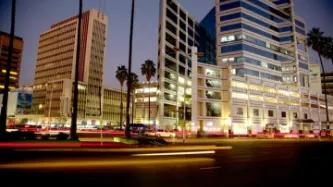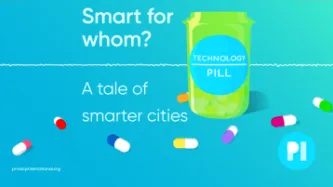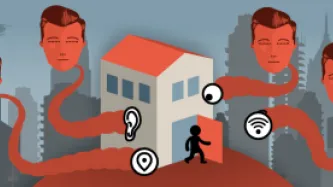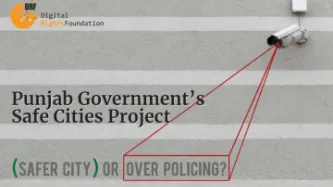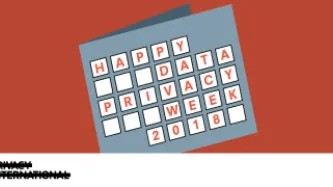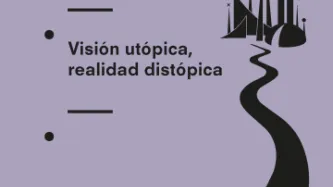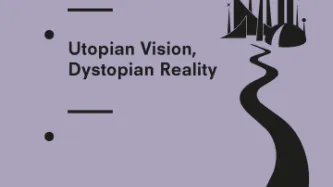Search
Content type: Long Read
Zimbabwe has a history of state led surveillance that is carried out more for political gain than for the investigation of legitimate criminal activities. During former President Mugabe’s 37 year rule the government used laws and state security structures to carry out targeted surveillance of persons of political interest and more generalised mass surveillance of the population.
Specific laws such as the Interception of Communications Act as well as mandatory SIM-card registration regulations…
Content type: Examples
In 2019, interviews with Hong Kong protesters destroying smart lampposts revealed that many distrusted the government's claim that they would only take air quality measurements and help with traffic control, largely because of the comprehensive surveillance net the Chinese government was using to control and oppress the minority Uighur population in the Xinjiang region. As part of their response to this threat, the protesters wore masks, carried umbrellas, and travelled on foot, using online…
Content type: Examples
In 2019 Hong Kong protesters cut down 20 of the city's smart lampposts, which are streetlights equipped with sensors and cameras, in order to counter the threat that they were vectors for surveillance technologies such as facial and licence plate recognition. TickTack Technology, which provided the lampposts, terminated its contract with the Hong Kong government because of the property damage and threats to its employees. Protesters uploaded pictures of the lampposts' inner workings to Facebook…
Content type: Examples
According to records obtained under a freedom of information request, the San Francisco Police Department used the camera network belonging to downtown Union Square Improvement District to spy on protesters during the end of May and early June 2020. The high-definition cameras, manufactured by Motorola brand Avigilon, can zoom in on a person's face and are linked to a software analysis system. Motorola is expanding its tool lineup to make it easier for police to gain access to private cameras…
Content type: Video
Find out more:
About PI's work on smart cities here: https://privacyinternational.org/learn/smart-cities
About Ellie's work here: https://www.urbaninnovationandpolicy.net/ellie-cosgrave
About Lakshmi's work here: https://aru.ac.uk/people/lakshmi-priya-rajendran
And Rob's work here: http://www.kitchin.org/
And you can support PI's work here: support.privacyinternational.org
Content type: Explainer
At first glance, infrared temperature checks would appear to provide much-needed reassurance for people concerned about their own health, as well as that of loved ones and colleagues, as the lockdown is lifted. More people are beginning to travel, and are re-entering offices, airports, and other contained public and private spaces. Thermal imaging cameras are presented as an effective way to detect if someone has one of the symptoms of the coronavirus - a temperature.
However, there is little…
Content type: Case Study
The Ugandan government has a running contract with the Chinese tech giant, Huawei, to supply and install CCTV cameras along major highways within the capital, Kampala, and other cities.
While details of the contract remain concealed from the public, the Uganda Police Force (UPF) released a statement, simply confirming its existing business partnership for telecommunication and surveillance hardware, and software between the security force and Huawei. However, it is not clear whether the…
Content type: Case Study
Well into the 21st century, Serbia still does not have a strong privacy culture, which has been left in the shadows of past regimes and widespread surveillance. Even today, direct police and security agencies’ access to communications metadata stored by mobile and internet operators makes mass surveillance possible.
However, a new threat to human rights and freedoms in Serbia has emerged. In early 2019, the Minister of Interior and the Police Director announced that Belgrade will receive “a…
Content type: News & Analysis
Yesterday, Amazon announced that they will be putting a one-year suspension on sales of its facial recognition software Rekognition to law enforcement. While Amazon’s move should be welcomed as a step towards sanctioning company opportunism at the expense of our fundamental freedoms, there is still a lot to be done.
The announcement speaks of just a one-year ban. What is Amazon exactly expecting to change within that one year? Is one year enough to make the technology to not discriminate…
Content type: Examples
Aided by its small size, Singapore's contact tracing efforts were a key element of controlling the virus's spread; detectives used CCTV footage to locate the contacts of more than 6,000 people. Singapore also contacts individuals required to self-isolate several times a day and requires them to send photographic proof of their location. Breaking quarantine attracts substantial penalties, including jail terms, and in one case stripped an offender of his residency rights. Singapore also quickly…
Content type: Examples
The "safety guidance texts" sent by health authorities and district offices in South Korea are causing information overload and have included embarrassing revelations about infected people's private lives. A text may include, for example, a link to trace the movements of people who have recently been diagnosed with the virus. Clicking on the link takes the user to the website of a district office that lists the places the patient had visited before testing positive. In one case, a man in his…
Content type: Long Read
The UK’s Metropolitan Police have began formally deploying Live Facial Recognition technology across London, claiming that it will only be used to identify serious criminals on “bespoke ‘watch lists’” and on “small, targeted” areas.
Yet, at the same time, the UK’s largest police force is also listed as a collaborator in a UK government-funded research programme explicitly intended to "develop unconstrained face recognition technology", aimed “at making face…
Content type: Examples
In late 2017, the residents of the small town of Santa Maria Tonantzintla, about three-hours away from Mexico City, discovered their town was intended to become a pilot smart city in a collaboration between the state of Puebla and the organisation Alianza Smart Latam. The town's residents, who had already lost its distinctive cobblestones, the clock tower, and a stucco bridge as part of the early stages of the project, filed an injunction to halt the project, which had failed to obtain the…
Content type: News & Analysis
Planning and participating in peaceful protests against governments or non-state actors’ policies and practices requires the capacity of individuals to communicate confidentially without unlawful interference. From protests in support of LGBTI rights to protests against specific projects that undermine local communities’ wellbeing, these movements would not have been possible without the ability to exchange ideas and develop plans in private spaces.
Unlawful interference with…
Content type: Long Read
The Privacy International Network is celebrating Data Privacy Week, where we’ll be talking about how trends in surveillance and data exploitation are increasingly affecting our right to privacy. Join the conversation on Twitter using #dataprivacyweek.
In the era of smart cities, the gap between the internet and the so-called physical world is closing. Gone are the days, when the internet was limited to your activities behind a desktop screen, when nobody knew you were a dog.
Today, the…
Content type: Long Read
The idea of a “smart city” is primarily a marketing concept, used to sell data-intensive technologies under the pretext of improving the functioning of cities. This could include injecting ‘smart’ tech into delivering services, public safety, environmental monitoring, traffic control, among other possible applications.
One in particular aspect of smart cities has been consistently problematic: how these projects are used to boost law enforcement and policing under the guise of public safety.…
Content type: News & Analysis
By Digital Rights Foundation, Pakistan
What is a safe city?
The answer to this question is not uniform; in fact it varies according to who you ask.
In a focus group conducted by Digital Rights Foundation in May of last year, consisting of women rights activists from across Pakistan, the answer meant imagining a city that was not only safe for women, in terms of their physical safety, but also welcoming for women and non-binary individuals in its architecture and facilities. Women expressed…
Content type: Explainer
“Smart city” is a marketing term used to define the use of technology – and in particular data collection – to improve the functioning of cities. The idea behind smart cities is that the more local governments know about city inhabitants the better the services they deliver will be. However, the reality is that the term means different things to different actors from companies to governments.
The World Bank suggests two possible definitions of smart cities. The first one is “a technology-…
Content type: Examples
As part of its Smart Nation programme, in 2016 Singapore launched the most extensive collection of data on everyday living ever attempted in a city. The programme involved deploying myriad sensors and cameras across the city-state to comprehensively monitor people, places, and things, including all locally registered vehicles. The platform into which all this data will be fed, Virtual Singapore, will give the government the ability to watch the country's functioning in real time. The government…
Content type: Examples
In 2015, the Royal Parks conducted a covert study of visitors to London's Hyde Park using anonymised mobile phone signals provided by the network operator EE to analyse footfall. During the study, which was conducted via government-funded Future Cities Catapult, the Royal Parks also had access to aggregated age and gender data, creating a detailed picture of how different people used the park over the period of about a year. The study also showed the percentage of EE subscribers who visited…
Content type: Examples
In early 2016 Libreville, the capital of Gabon, signed up for Microsoft's CityNext programme, which is intended to supply innovative "smart city" solutions in eight key areas: health, social services, infrastructure, water, electricity, justice, culture, and education. Applications in each area will allow the city to manage traffic and urban transport, govern and collect taxes, and provide citizens with electronic access to health, citizen, police, and emergency services, as well as make it…
Content type: Examples
In 2016, researchers at Dalhousie University in Canada and the Weizman Institute of Science in Israel developed a proof-of-concept attack that allowed them to take control of LED light bulbs from a distance of up to 400 metres by exploiting a flaw in the Zigbee protocol implementation used in the Philips Hue system. Because the same key was used in every bulb, once it had been extracted from one bulb it could be reused on all of them. Writing a new operating system to one of the bulbs…
Content type: Examples
In 2014, NYC Planning Labs Chris Whong was sent and made public a complete a complete dump of historical trip and fare logs from New York City taxis in response to a Freedom of Information request. The more than 20GB of uncompressed data comprising more than 173 million individual trips included pickup and drop-off locations and times and other metadata - but also personally identifiable information about the driver. Careful analysis enabled researchers to deanonymise the entire dataset,…
Content type: Examples
In 2014, India's newly elected prime minister, Narendra Modi, allocated INR70.6 billion (upwards of £750 million) to a plan called "100 Smart Cities". Although a year later the funding dropped to INR1.4 billion, smart city-themed conference continued to take place in Delhi and Mumbai, and urban development minister Venkaiah Naidu expected imminent roll-out of cities with infrastructure comparable to any developed European city. However, the earliest of these cities - such as Palava City, built…
Content type: Long Read
To celebrate International Data Privacy Day (28 January), PI and its International Network have shared a full week of stories and research, exploring how countries are addressing data governance in light of innovations in technology and policy, and implications for the security and privacy of individuals.
Content type: Long Read
To celebrate Data Privacy Week, we spent the week discussing privacy and issues related to control, data protection, surveillance, and identity. Join the conversation on Twitter using #dataprivacyweek.
Do you live in a “smart city”? Chances are, you probably do (or at least your city claims to be). But do you know what exactly makes your city “smart”, beyond the marketing term? And what does this have to do with privacy?
Companies and governments will tell you that the more cameras, sensors…
Content type: Report
¿Existen ciudades inteligentes? ¿O son un pretexto para recolectar y procesar más datos? Este informe examina la realidad del mercado de las ciudades inteligentes más allá del uso del término de marketing "inteligente" y las iniciativas existentes. También consideramos las consecuencias y las importantes preocupaciones que surgen en términos de privacidad y otros derechos humanos.
Content type: Examples
In 2017, the New York Times discovered that Uber had a secret internal programme known as "Greyball", which used data collected from the Uber app and other techniques to identify and bar regulators and officials from using its service. As the company expanded into new areas, its standard practice was to open up and begin offering rides without seeking regulatory approval first. The company used Greyball to prevent regulators from building a case against the company in areas where…
Content type: Examples
In 2015 Hong Kong's Face of Litter campaign used DNA samples taken from street litter and collected from volunteers to create facial images that were then posted on billboards across the city. The campaign, conceived by PR firm Ogilvy & Mather and organised by online magazine Ecozine and the Nature Conservancy, was intended to give a face to anonymous Hong Kong litterbugs and raise awareness of the extent of littering in the city and encourage people to…
Content type: Report
The smart city market is booming. National and local governments all over the world expect their cities to become more efficient, more sustainable, cleaner and safer by integrating technology, increasing data generation and centralising data to provide better services. From large multinationals to small start-ups, companies want their slice of the multi-billion dollars per year pie of municipal budgets and long-term government contracts.
But do smart cities even exist? And are our cities…
